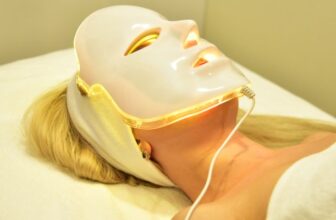
When it comes to our aging loved ones, finding the right nursing home is crucial for their well-being and happiness. Unfortunately, cases of abuse and neglect in nursing homes have been reported, highlighting the need for careful selection and monitoring. In this comprehensive guide, we will provide you with valuable insights and strategies to help you avoid abuse by choosing the right nursing home. From understanding the signs of abuse to evaluating nursing homes effectively, we’ll equip you with the knowledge and tools to make an informed decision that prioritizes the safety and care of your loved ones.
1. Understanding the Importance of Choosing the Right Nursing Home
Selecting a nursing home is a decision that should not be taken lightly. The choice you make can significantly impact the quality of life and overall well-being of your loved one. By choosing the right nursing home, you ensure they receive the care, attention, and support they need while maintaining their dignity and independence.
2. Signs of Abuse in Nursing Homes
Recognizing the signs of abuse is crucial in protecting your loved ones. Some common signs include unexplained injuries, sudden changes in behavior, poor personal hygiene, and unaddressed medical concerns. It’s important to be vigilant and take immediate action if you suspect abuse.
3. Researching and Gathering Information
Before making a decision, gather information about nursing homes in your area. Utilize online resources, such as government websites and reputable review platforms, to access facility ratings, inspection reports, and feedback from residents and their families.
4. Evaluating Nursing Home Facilities
Visit potential nursing home facilities to assess their physical environment, ambiance, and overall atmosphere. Pay attention to cleanliness, safety measures, and the general state of the facility. This firsthand experience will help you gauge the quality of care provided.
5. Assessing Staff Qualifications and Ratios
The competence and qualifications of the nursing home staff play a pivotal role in the care provided. Inquire about staff training, certifications, and experience levels. Additionally, consider the staff-to-resident ratio to ensure adequate attention and supervision for your loved one.
6. Reviewing Safety Measures and Protocols
Safety should be a top priority in nursing homes. Inquire about emergency protocols, security measures, and the presence of safety equipment. Understanding how the facility handles potential risks and emergencies will give you peace of mind.
7. Examining the Quality of Care and Services
Evaluate the quality of care and services offered by the nursing home. Look for indicators of personalized care, compassionate staff, and resident satisfaction. Consider factors such as assistance with daily activities, medication management, and access to specialized care.
8. Considering Resident Engagement and Social Activities
Social engagement and recreational activities are vital for the well-being and happiness of nursing home residents. Inquire about the variety and frequency of activities available to ensure your loved one can participate in meaningful interactions and hobbies.
9. Ensuring Proper Medical Care and Support
Verify that the nursing home provides appropriate medical care and support. Inquire about the availability of healthcare professionals, medication administration procedures, and the coordination of medical appointments and treatments.
10. Evaluating Food and Nutrition Standards
Nutrition plays a significant role in the health and vitality of nursing home residents. Evaluate the quality of meals, dietary accommodations, and the expertise of the facility’s nutritionists or dietitians. Ensure that your loved one’s dietary needs are met adequately.
11. Assessing the Cleanliness and Hygiene of the Facility
Cleanliness and hygiene are essential for preventing the spread of infections and maintaining a comfortable living environment. Assess the cleanliness of common areas, resident rooms, and bathrooms to ensure a high standard of cleanliness is upheld.
12. Understanding Medication Management
Proper medication management is critical in a nursing home setting. Inquire about the protocols in place for medication administration, storage, and documentation. Ensure that there are systems in place to prevent medication errors and to monitor medication adherence.
13. Reviewing the Facility’s Policies and Procedures
Thoroughly review the nursing home’s policies and procedures. Pay attention to areas such as resident rights, complaint resolution processes, visitation policies, and end-of-life care. Understanding these policies will help you determine if the facility aligns with your loved one’s needs and values.
14. Assessing the Financial Aspects of Nursing Home Care
Consider the financial aspects associated with nursing home care. Inquire about costs, payment options, insurance coverage, and potential financial assistance programs. Understanding the financial implications will help you plan and make informed decisions.
15. Considering Location and Proximity to Family
Proximity to family members is an important consideration when choosing a nursing home. Being close to loved ones allows for more frequent visits, which can positively impact the emotional well-being of residents. Assess the location and transportation options available.
16. Understanding the Rights of Nursing Home Residents
Familiarize yourself with the rights and protections afforded to nursing home residents. These rights include dignity, privacy, access to medical care, freedom from abuse, and the ability to participate in decisions regarding their care. Advocate for your loved one’s rights throughout the selection process.
17. Exploring Alternative Care Options
In some cases, nursing home care may not be the best fit for your loved one. Explore alternative care options such as assisted living communities, home care services, or adult day programs. Consider the specific needs and preferences of your loved one when exploring these alternatives.
18. Creating a Checklist for Evaluating Nursing Homes
To ensure a thorough evaluation, create a checklist that includes the key factors mentioned earlier. This checklist will help you compare different nursing homes objectively and make an informed decision based on your loved one’s specific needs.
19. Seeking Recommendations and Referrals
Seek recommendations and referrals from trusted sources such as healthcare professionals, social workers, or friends who have firsthand experience with nursing homes. Their insights can provide valuable guidance and help you narrow down your options.
20. Taking a Tour of Potential Nursing Home Facilities
Schedule tours of potential nursing homes to gain a better understanding of their environment, culture, and services. During the tour, ask questions, observe interactions between staff and residents, and trust your intuition when assessing the suitability of the facility.
21. Asking Important Questions
During your interactions with nursing home staff, be prepared to ask important questions. Inquire about staffing levels, staff turnover rates, resident care plans, and complaint resolution procedures. Asking these questions will help you gather crucial information for decision-making.
22. Trusting Your Instincts
Intuition plays a significant role in decision-making. Trust your instincts and pay attention to how you feel during visits, conversations, and observations. If something doesn’t feel right, it’s essential to explore your concerns further and consider alternative options.
23. Staying Vigilant and Monitoring Care
Even after selecting a nursing home, it’s crucial to stay vigilant and monitor the care provided to your loved one. Regular visits, open communication with staff, and observation of their well-being are important to ensure their safety and quality of care.
24. Recognizing and Reporting Abuse
If you suspect abuse or neglect in a nursing home, it’s important to take immediate action. Recognize the signs, document any evidence, and report your concerns to the appropriate authorities, such as the facility’s management, local law enforcement, or adult protective services.
25. Empowering and Supporting Your Loved Ones
Above all, empower and support your loved ones throughout their nursing home journey. Regularly communicate with them, actively listen to their concerns, and involve them in decision-making as much as possible. Your support and involvement will make a significant difference in their well-being.
FAQs:
Q: How can I recognize signs of abuse in a nursing home?
A: Look out for unexplained injuries, sudden changes in behavior, poor personal hygiene, and unaddressed medical concerns.
Q: What should I consider when evaluating nursing home facilities?
A: Evaluate factors such as cleanliness, safety measures, quality of care, staff qualifications, and resident engagement activities.
Q: How can I ensure proper medical care and support for my loved one?
A: Inquire about the availability of healthcare professionals, medication management protocols, and coordination of medical appointments and treatments.
Q: What are some alternative care options to nursing homes?
A: Assisted living communities, home care services, and adult day programs are alternative care options worth exploring.
Q: What should I do if I suspect abuse or neglect in a nursing home?
A: Document any evidence, recognize the signs, and report your concerns to the appropriate authorities, such as the facility’s management or adult protective services.
Q: How can I empower and support my loved ones in a nursing home?
A: Regularly communicate with them, actively listen to their concerns, involve them in decision-making, and stay engaged in their care.
Conclusion:
Choosing the right nursing home is a critical decision that requires careful evaluation and consideration. By following the outlined strategies, you can avoid abuse and ensure your loved ones receive the care they deserve. Stay vigilant, trust your instincts, and prioritize their safety and well-being. With the information provided in this guide, you can make an informed choice and provide the support and care that will enhance the quality of life for your aging loved ones.




